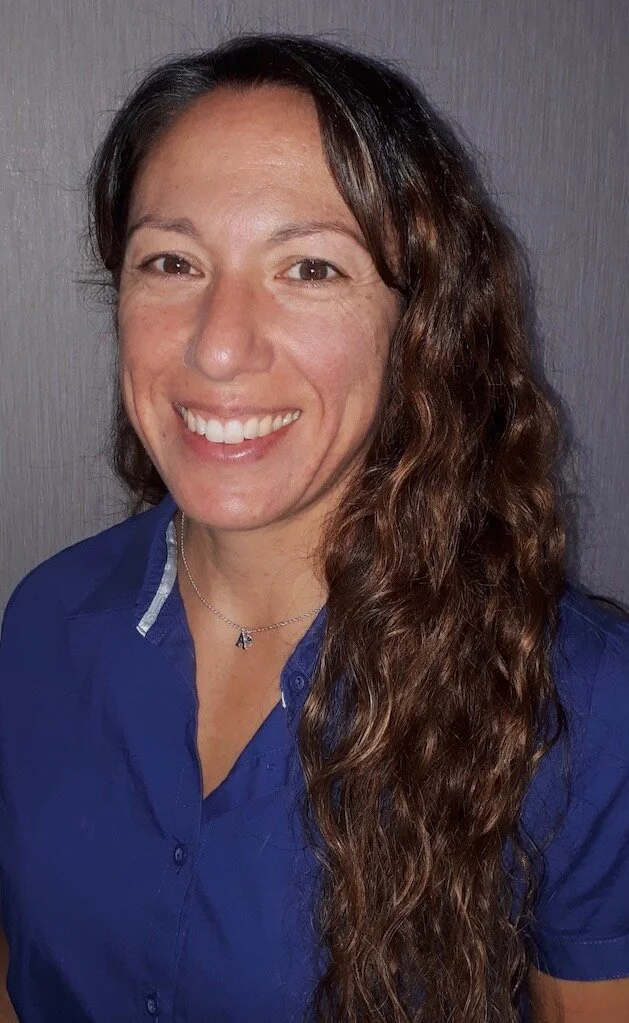Joan Gibert
Joan Gibert. Personal photo
She was named for the singer her parents love: Joan Baez. But the normal French version of the name is Jeanne whilst the masculine version is Johan. As her name more closely resembles the latter, when teachers read the name they expected to see a boy. “No, I'm a girl!” she'd say, explaining with a laugh that this might be why she has never considered her gender as an impediment to anything she might want to do. “It's never even crossed my mind to question whether my job is a 'man's job' or a 'woman's job',” she tells me over coffee in my first face-to-face interview since the Covid-19 pandemic broke out in March.
““It’s never even crossed my mind to question whether my job is a ‘man’s job’ or a ‘woman’s job””
Today this mechanical engineer and mother of two is the product manager for trucks at Arquus, which is Volvo's military vehicles arm. She came to this job a year ago from a 17-year career with Renault's civilian vehicles. Her job entails “guiding the engineering so it meets our clients' requirements, steering the compromises that we need to make, so that we can develop our future products.” To help her adapt to the military aspect of her new job she's currently attending the War College – Land Army one day a week.
Joan was good at maths at school so went on to study the subject at the Paul Sabatier university in Toulouse. But she didn't want to become a teacher or an academic so instead opted to sit the competitive entrance exam for what was at the time the National Higher School for Engineers in Mechanics and Energy (ENSIMEV) and is now the National Institute for Applied Sciences (INSA) in northern France. In her class, where just 10% of the students were women, “I specialised in the use and conversion of energy,” she explains.
For the first of her two obligatory internships she went to the Karlsruhe Nuclear Research Centre in Germany where she worked on depolluting the cooling system of the ITER (International Thermonuclear Experimental Reactor) project. “It was a fantastic experience working with so many different nationalities,” Joan enthuses.
She then went to Bristol to work on knowledge management with Airbus UK. So she is now fluent in German (almost!!) and English.
Joan joined Renault's civilian vehicles department fresh out of ENSIMEV as a thermal engineer and in her five years in that department filed a number of patents and qualified innovative heating and air conditioning systems. She then moved to the ergonomics department, then extended her working perimeter to interior layouts and onboard systems staying there for seven years and working notably on Renault's first electric car, Zoe. Joan particularly enjoyed working on vehicle projects: the teamwork, the common objective and working on a very concrete object.
After another five-year stint working for Renault's utilities vehicles Joan decided it was time for a change. “I wanted to see if I was capable of leaving my comfort zone. After all my entire career up to that point had been in the same company. My husband was extremely encouraging about me changing jobs,” she smiles.
The job advertisement posted by Arquus piqued her interest. “Before I even applied I thought long and hard about working in the defence sector because I know that in order to invest myself in a job, I need to like the product that I'm making. In the end it was the defence and military aspect that attracted me.” This charming and friendly young woman was also drawn to the technological challenge of designing military trucks. “It's a stimulating domain and an interesting challenge,” she remarks.
Joan presenting one of her trucks to the French Army at the Arquus Days in September 2020. Photo credit: Nicolas Broquedis
Joan adds that now that she's in the business she realises how highly regulated the armaments industry is, “which is reassuring” and that she's understood, as perhaps people outwith the sector don't, “that this material serves to protect us. The vehicles I work on also serve to protect the people who protect us and that gives real meaning to our work.”
The world of cars and trucks is a traditionally masculine one. But Joan says she's “never been spited because of my gender but I have come across a lot of paternalism.” She thinks again and reconsiders. “Well, actually I did get a comment once in 2002 when I was looking for a job and it was difficult to get hired [after the 9/11 terrorist attack in New York]. I had two job offers and one of my male class-mates had none and rather bitterly told me that he thought I'd probably only got these offers because companies needed to up the numbers of female engineers they hired.”
But, Joan, argues, “if everything else is equal between two candidates and one is male and one is female then why not give the woman a chance?”
As for the paternalistic comments, she regards them as almost charming “because they came from people who were much older than me and unused to working with girls. It's true that I've often been treated like a princess,” she laughs. “But one's gender really shouldn't even come into question.”





